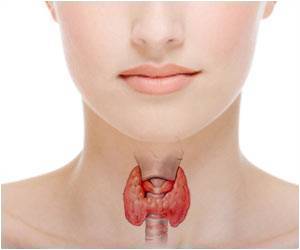High burden of iodine insufficiency in Israel increases risk of maternal and fetal hypothyroidism and impaired neurological development.

‘A high burden of iodine deficiency in the general population: 62% of school-age children and 85% of pregnant women fall below the WHO's adequacy range.’





They found a high burden of iodine deficiency in the general population: 62% of school-age children and 85% of pregnant women fall below the WHO’s adequacy range. Iodine adequacy is defined by the WHO as a population median of 150-249 micrograms/liter for pregnant women and 100-199 micrograms/liter for school-age children. Virtually no differences were seen between different ethnicities and regions of the country suggesting that low iodine status is widespread and universal throughout the country.
The median urinary iodine concentration (UIC) among Israel’s pregnant women, only 61 micrograms iodine/liter and for school-age children, the median of 83 micrograms/liter suggest that the iodine status in Israel is amongst the lowest in the world.
Adequate iodine intake is essential
- for thyroid function and human health throughout life
- full intellectual potential
- cognitive performance
Iodine deficiency in utero and in early childhood impairs brain development, and severe iodine deficiency causes cretinism (physical malformation, dwarfism and mental retardation) and goiter (the enlargement of the thyroid gland). "The immediate implication of our findings is that we need to improve the public’s intake of iodine," said Prof. Aron Troen, Principal Investigator at the Nutrition and Brain Health Laboratory, School of Nutrition Science, Hebrew University’s Robert H. Smith Faculty of Agriculture, Food and Environment.
Advertisement
The need for action
Advertisement
"Caregivers should recommend adequate iodine intake during pregnancy and lactation, and a randomized clinical trial of risk and benefit for correction of mild-moderate iodine deficiency during pregnancy must be considered," said Dr. Arbelle.
"A healthful diet is a foundation of a prosperous nation. The public has a right, and government has both a moral obligation and clear-cut social and economic incentive to ensure that the nation’s food supply supports the public’s health, well-being and productivity," said Prof. Troen.
The World Health Organization and Iodine Global Network encourage mandatory, universal salt iodization, including the all discretionary household salt. However, some countries have effectively been able to increase their iodine intakes through the use of iodized salt in processed foods, including bread and condiments, and this may be considered in Israel. "Government action is needed to ensure that everyone has access to iodized salt, added Prof. Troen.
These findings also highlight the critical need for routine public health surveillance, not only of iodine, but also of other nutritional and environmental exposures that determine the Israeli population’s collective health.
"I’m pleased that the Ministry of Health has been supportive of this particular research effort, but to act on the findings and make a sustainable change will require government funding and legislation," said Prof. Troen.
Source-Eurekalert











